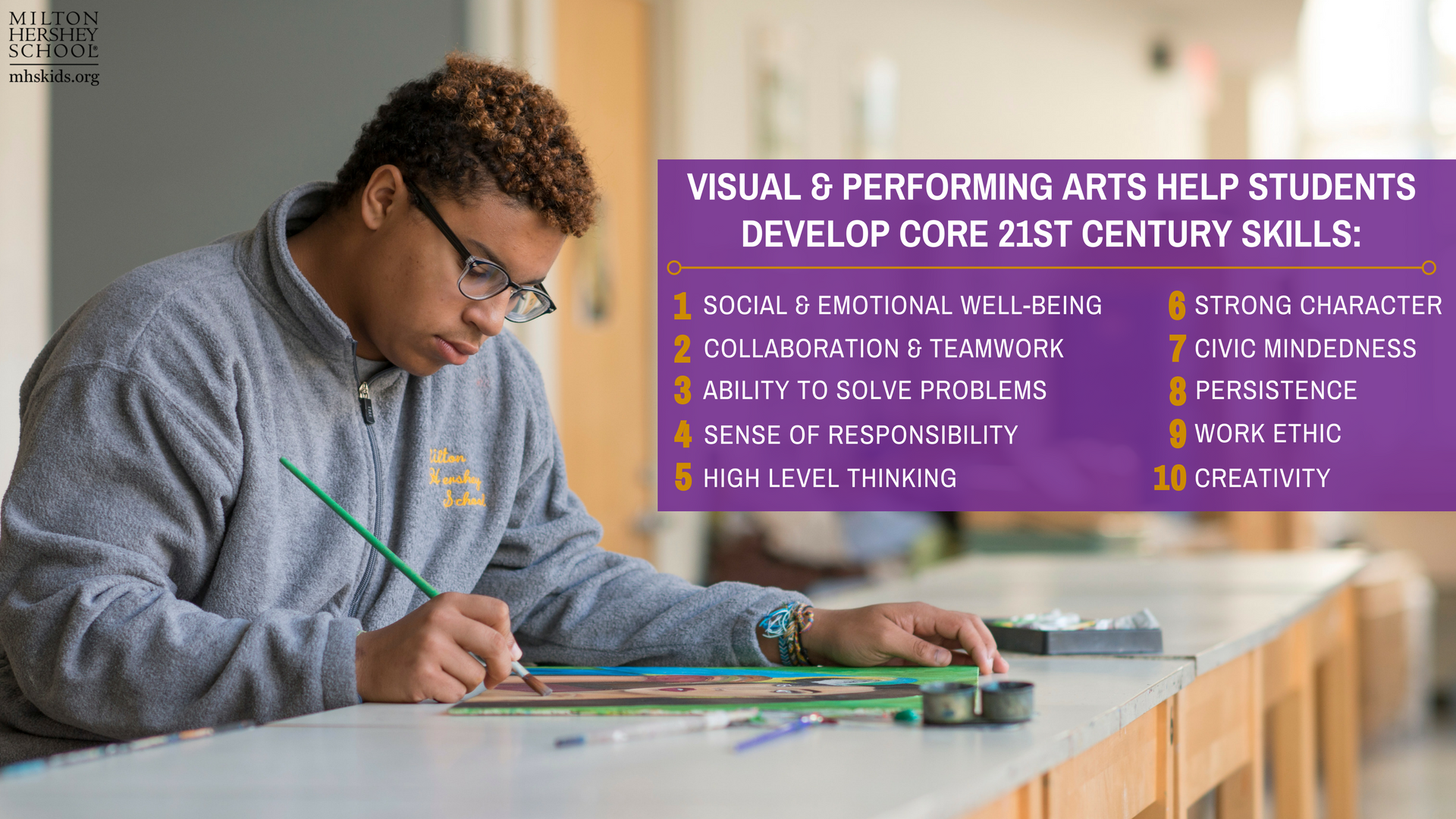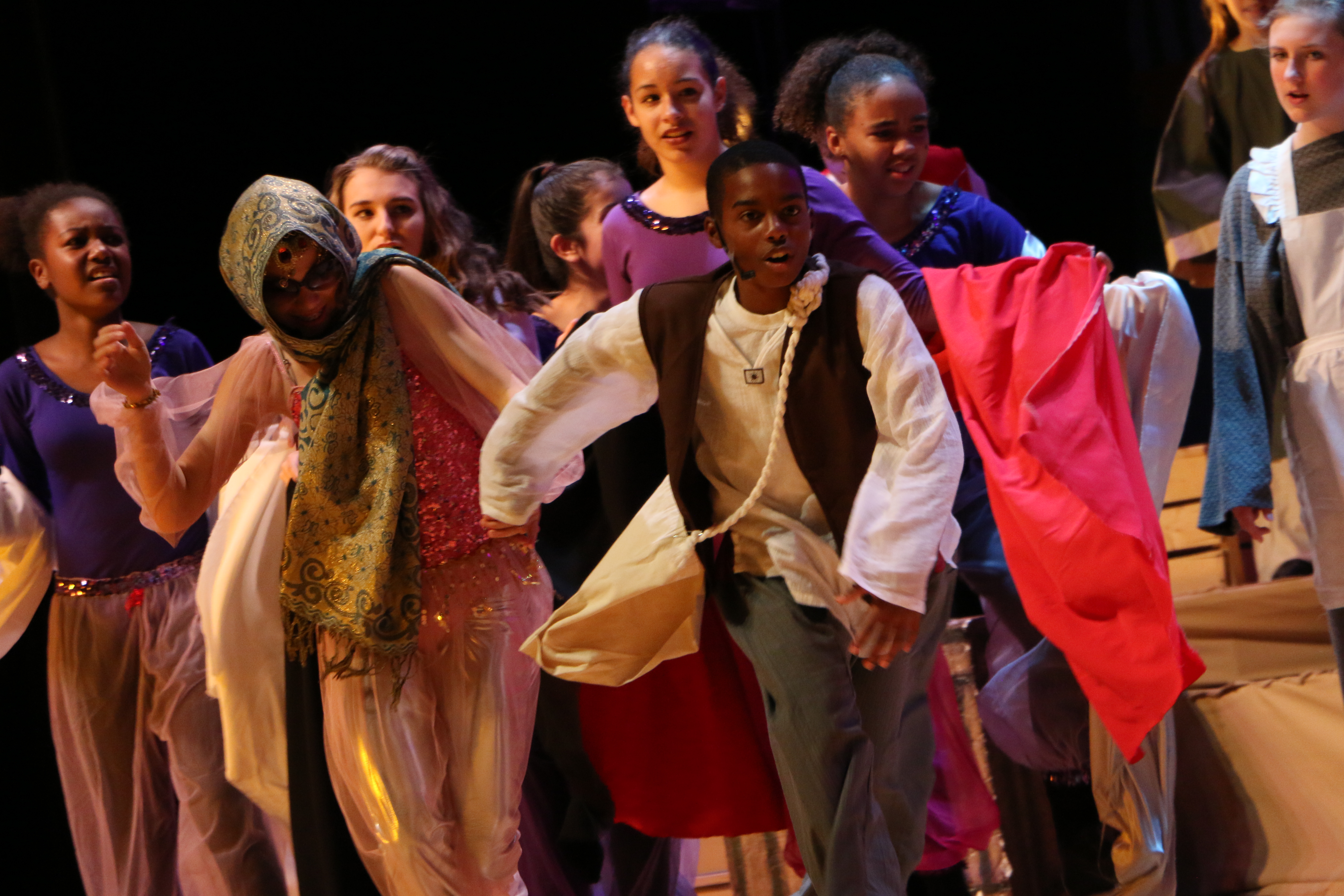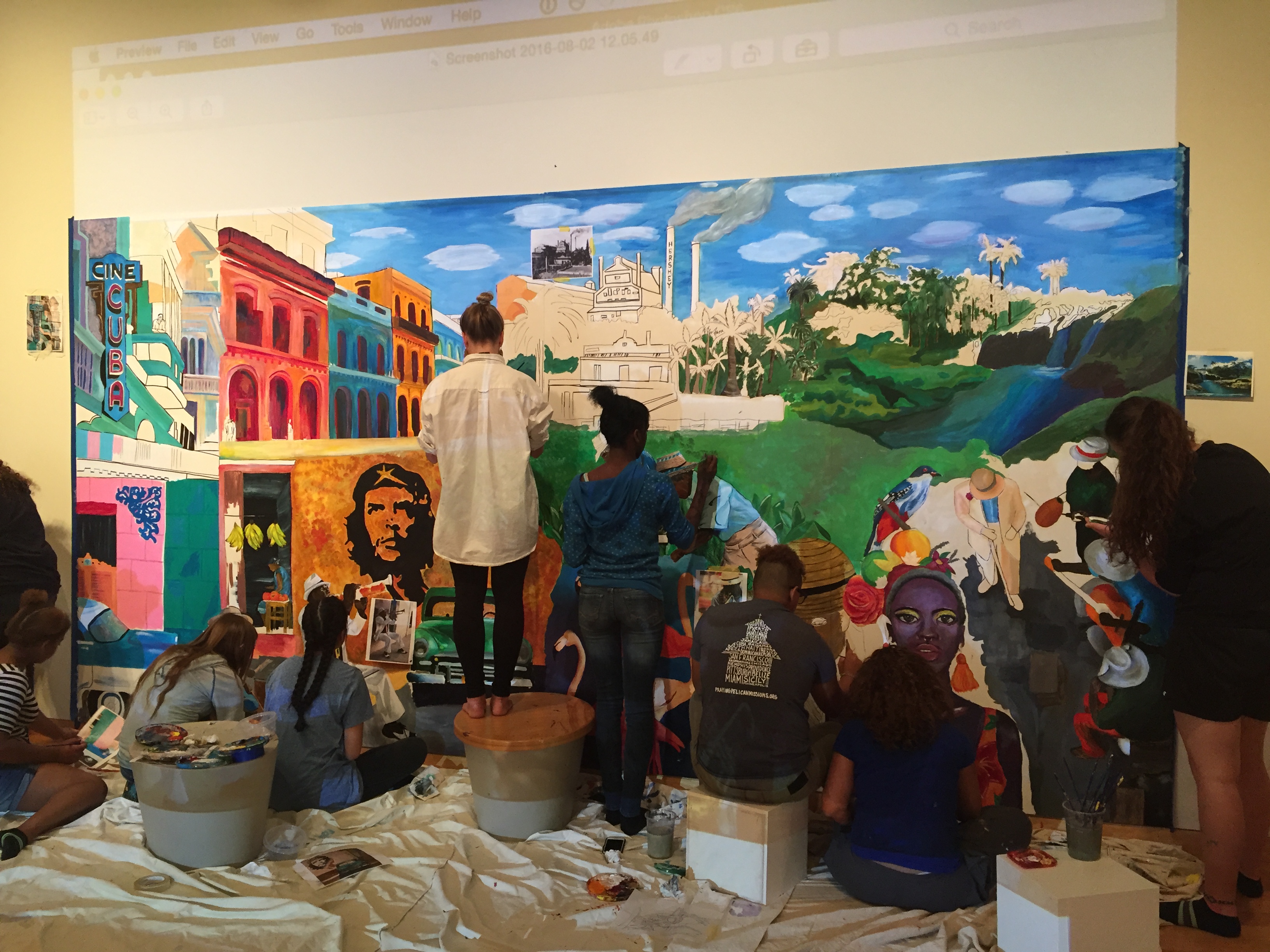Music In Our Schools Month: The Benefits of Visual and Performing Arts
Visual and performing arts (VPA) affect most people’s daily lives, whether we’re watching a movie, viewing an advertisement, or listening to music. For students who choose to participate in the arts, they benefit academically as well.
According to the National Assembly of State Arts Agencies (NASAA) and a national study of over 25,000 middle and high school students, students who are involved in the arts perform better on standardized achievement tests. The study also found that students involved in the arts are more engaged in the classroom and participate in more community service.
With a history of developing driven, well-rounded students who care about the world around them, the arts are a major part of Milton Hershey School’s STEAM curriculum. In honor of Music in Our Schools Month, learn more about the benefits of visual and performing arts and how an arts education can prepare students for the 21st-century job market.
Developing Foundational 21st Century Skills
Studies have found a strong correlation between music education and other academic areas, including mathematics and language. The American Mathematical Society reports that musicians and composers commonly use mathematics to create sounds, rhythms, and harmonies.
“I like to say that music is a subdivision of time and space with sound,” said Ed Varner, MHS Director of Visual and Performing Arts. “It requires higher level thinking and you have to do it with 50 other people in your [ensemble].”
By participating in musical ensembles and art classes, students gain important skills such as teamwork and collaboration that are instrumental to their success after graduation.
“If you take a look at the 21st-century job skills that employers want, they want people who can work together as a team. They want people who can think creatively,” Varner said. “VPA students learn that practice and hard work pay off. If they don’t invest time, their end product is not going to be good. It teaches persistence and shows them that there are multiple answers to any type of problem.”
This open-ended approach to solving problems correlates well with the school’s commitment to problem-based learning and STEAM education. MHS students learn that the foundational skills gained in the arts are valuable to a variety of disciplines. They also learn how to be responsible and actively build strong character and leadership by collaborating with their fellow artists.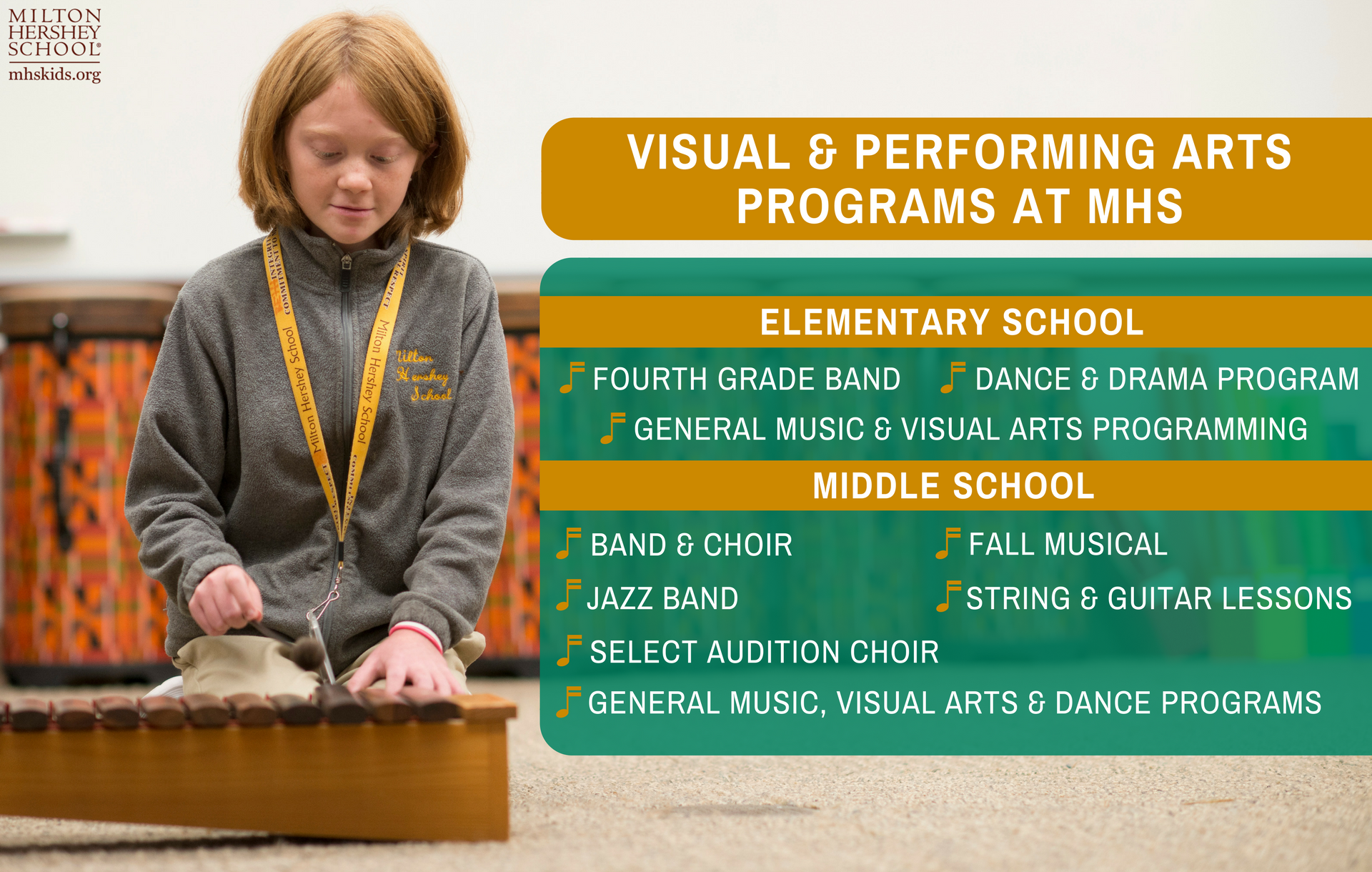
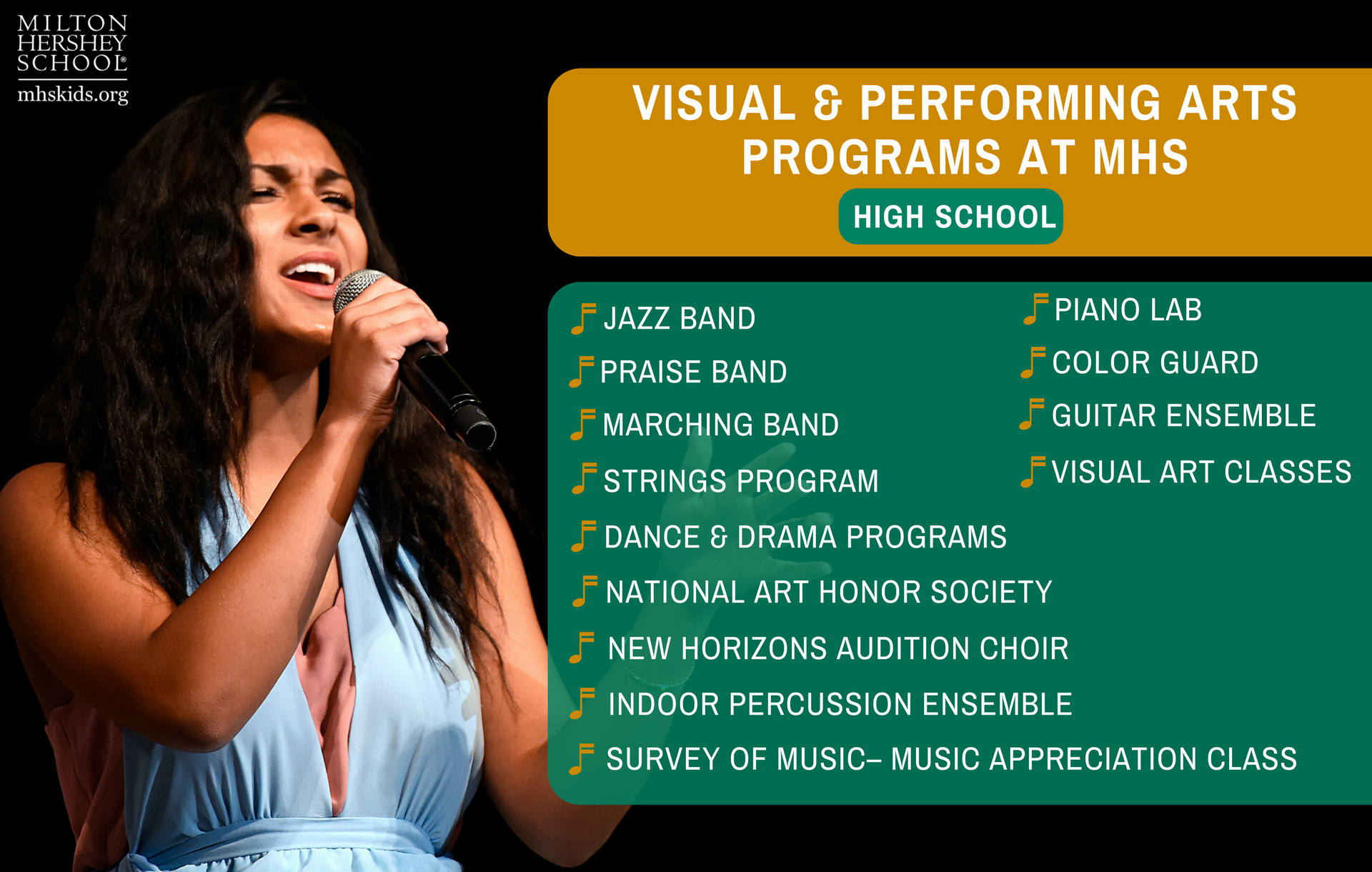
Getting Involved
For MHS students who are interested in the arts, they can get involved in multiple band, choir, dance, drama, and art programs. Some ensembles practice during the school day, while others have after-school rehearsals and private lessons. The school covers the costs of all instruments, equipment, and lessons.
There is also a strong focus on balancing the arts with academics to encourage a campus-wide sense of accountability. For example, marching band students have mandatory tutoring sessions integrated into their weekly practice schedule to ensure academics remain a top priority.
“I believe that a busy kid is a good kid. Our kids are excited and they want to do a lot of things, but sometimes we have to help coach them,” Varner explained. “The VPA staff pays attention to students’ grades and are very aware of where students stand so they can support them in all of their classes—not just the VPA classes.”
Getting involved in the arts can also motivate students to invest extra effort into their academic classes, so they can continue to participate in their extra-curricular ensembles.
“If we can help students recognize the value of the arts, we’re doing a service to them and society in general,” Varner said.
Succeeding After Graduation
From the elementary to high school level, MHS collaborates with outside organizations to give students opportunities to perform in public settings and professional environments. This year, middle school students had the opportunity to sing at The White House and meet former President Obama, and last year, the high school New Horizons choir sang “All You Need is Love” at a press conference to welcome Paul McCartney to Hershey, Pennsylvania.
These experiences give students a taste of what it’s like to work as a professional musician after graduation.
“We always get excited when a student chooses to major in the arts after graduation. But the reality is, not all students are going to be music or art majors,” said Varner. “Our goal is to embed 21st-century learning skills into our students and align our programs with the school’s values, so our students can become successful adults and citizens.”
No matter what they choose to study or where they choose to work, a lifelong passion for the arts offers a sense of community that can positively impact students’ success.
“Kids who are able to connect with a social group or other activity group have a better chance of succeeding,” Varner added. “If our students can connect with a smaller part of the community, it helps them.”
Music In Our Schools Month
Music In Our Schools Month was started by the National Association for Music Education, and it continues to be celebrated nationwide. At MHS, we’re celebrating the power of observation and how the arts influence students’ approach to life.
“In our art programs, one of the biggest goals is to help students observe. When you study and make art, whether it’s visual art or music, it’s intimately connected to how we approach life,” said Varner.
MHS is also celebrating Music In Our Schools Month by scheduling group performances throughout March, where middle school and high school VPA students will perform together for their community.
“VPA connects at a very core level with so many layers of student motivation, passion and engagement,” Varner said. “Students who study the arts tend to engage with their community and be civically active. The arts help them engage with life.”


